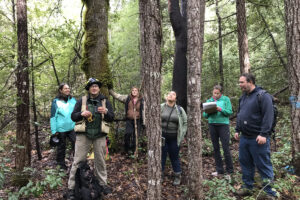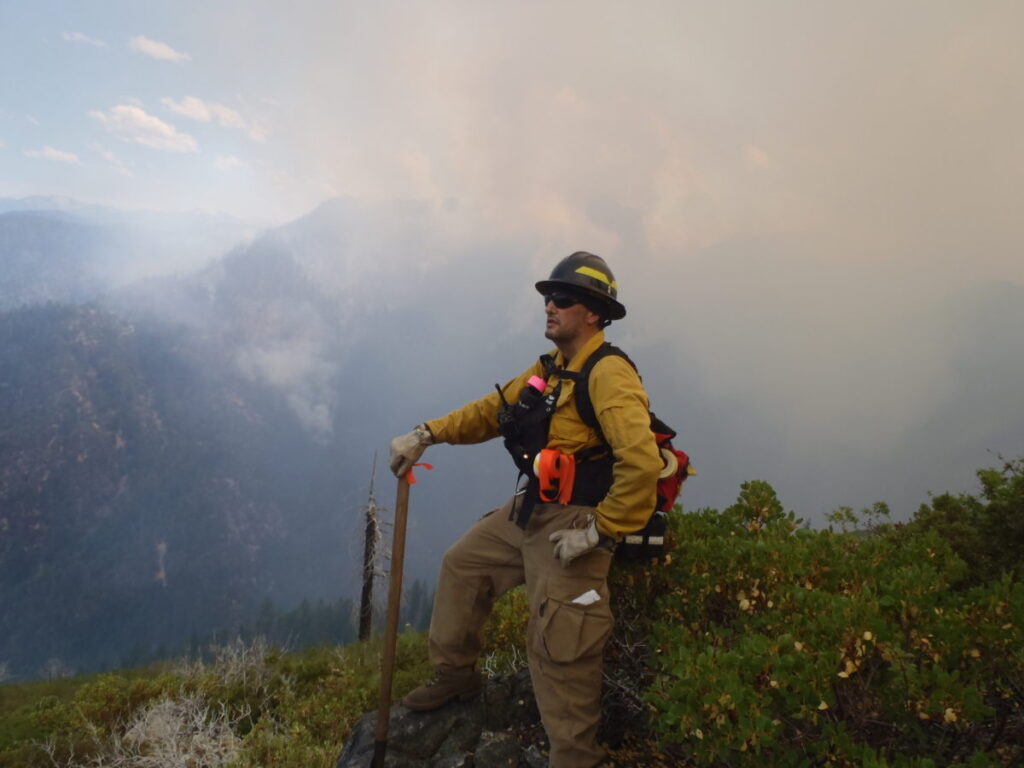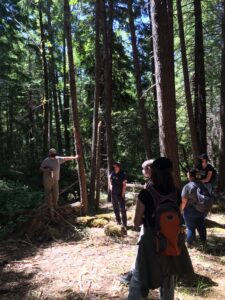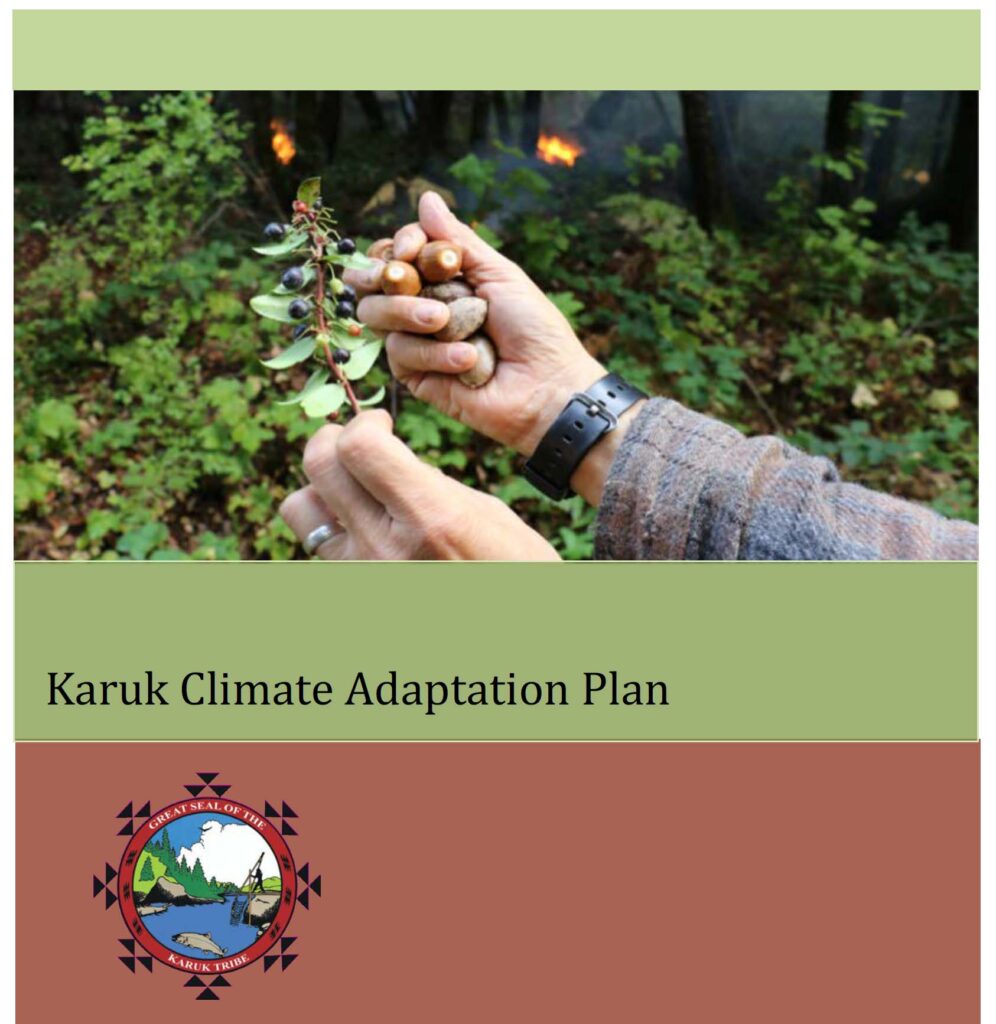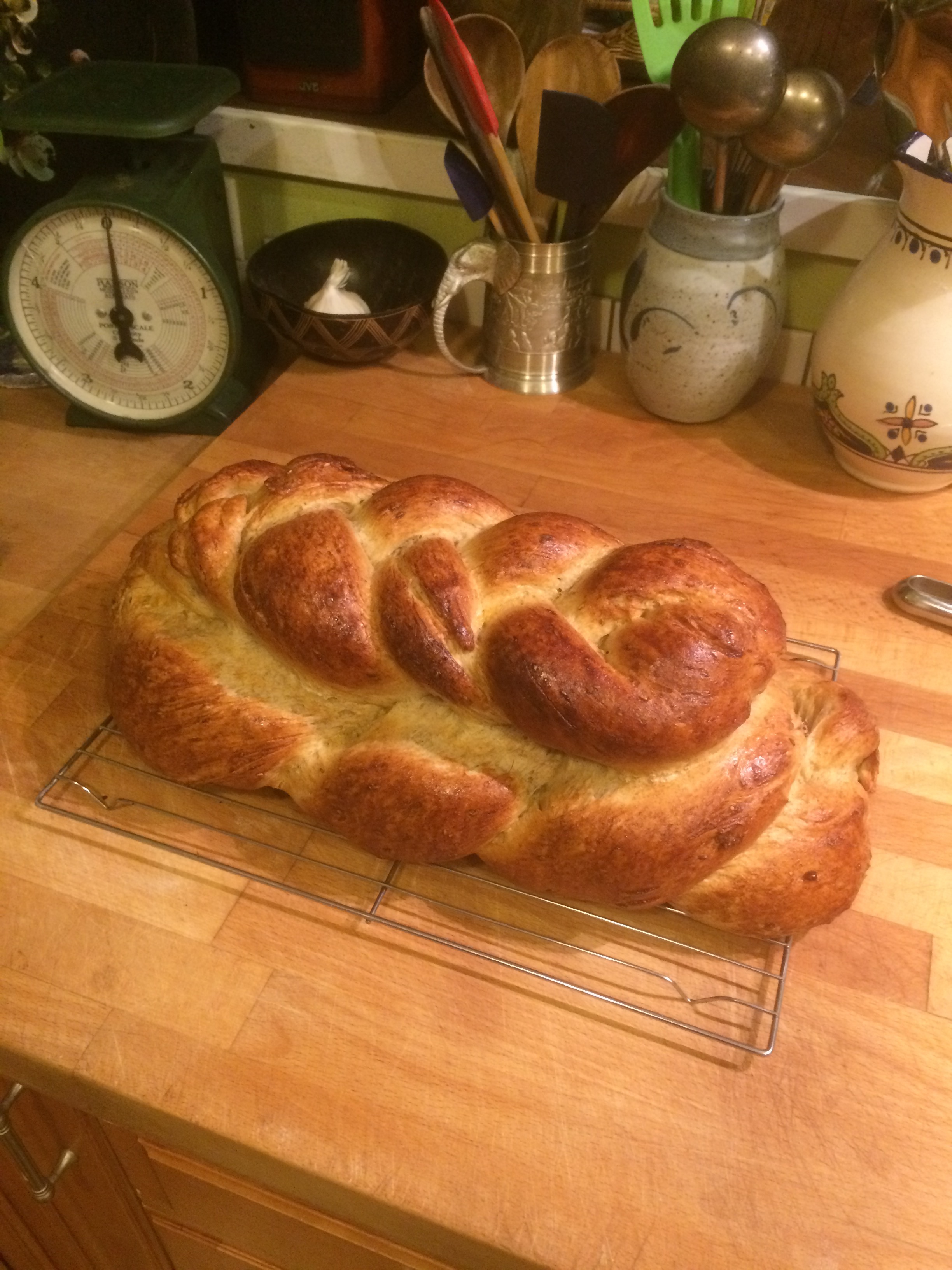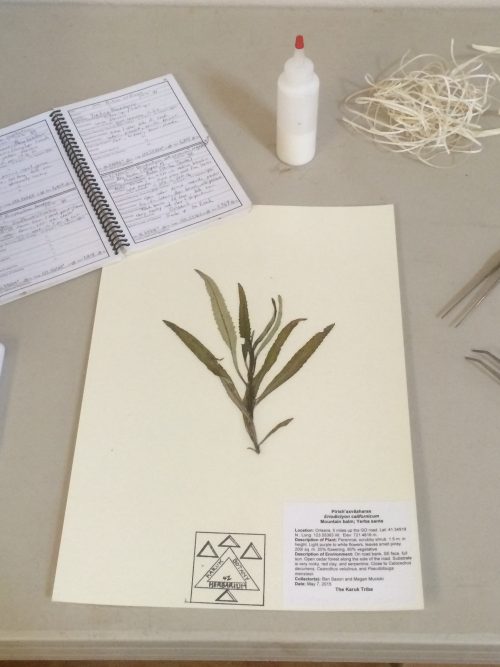October 2021. RACCA project teammates published “Conceptualizing Indigenous Cultural Ecosystem Services (ICES) and Benefits under Changing Climate Conditions in the Klamath River Basin and Their Implications for Land Management and Governance” in the peer-reviewed Journal of Ethnobiology. This paper adds a much-needed dimension of “reciprocal relationships” and concepts-paired-with-grounded-reality to the body of ecosystem services literature.
October 8, 2021. The RACCA project was featured in the nationally-recognized online news source Civil Eats! This was written by RACCA teammates (aka “Karuk Agroecosystem Resilience Initiative: xúus nu’éethti“) to highlight this collaborative effort on protecting and managing Karuk foodways in a changing world. Hopefully it will inspire other cultural food sovereignty work in the face of climate change!
July-October 2021. The McCash Fire in Siskiyou County burned over 94,000 acres and while few human structures have been directly endangered, the smoke impacted everyone in the region for many, many weeks.
September 8, 2021. KBC member and KDNR Director Bill Tripp is featured on this edition of Your Call from KALW Public Media with other guest speakers focused on forest management in California. Of course, wildfires play a starring role!
September 2, 2021. Take a look or listen to this thoughtful report on “restoring our relationship with fire” in California led by a KQED Science journalist who has been reporting on fire in California for some time now. Many cultural burning practitioners and advocates are referenced, including Bill Tripp, KDNR Director and KBC member.
July 23, 2021. KBC member and RACCA project teammate Frank Lake works to “spread the idea that fire is medicine” via actions on the ground and stories like this one from the PBS News Hour. Many other KBC partners and collaborators are featured.
May 21-28, 2021. The team behind the Karuk Agroecosystem Resilience Initiative: xúus nu’éethti came together with additional staff of the Karuk Dept. of Natural Resources for a virtual and in-person Karuk Agroecosystem Resilience Workshop series. This was an important milestone in the development of one of the major outputs of the multi-year research project (our Resilience Report, coming soon!) as well as a special time to gather together, in-person and safely, on the land since the pandemic started. We were joined by Karuk Tribal Chairman Buster Atteberry as well as special guest Dr. David Ackerly, Dean of the Rausser College of Natural Resources at UC Berkeley.
May 28, 2021. The push for meaningful land and fire management change on the 98% of Karuk Aboriginal Territory controlled by the US Forest Service continues, as detailed by this KQED article, efforts led from within and outside including by multiple leading KBC members.
January 19, 2021. This Siskiyou Daily News article provides a bracing overview of a recent report/plan co-written by Karuk Dept. of Natural Resources Director and Karuk-Berkeley Collaborative (KBC) member Bill Tripp that details how the Tribe can put into practice their cultural resource management practices to help their community adapt to wildfire and avoid catastrophe under PG&E’s distribution areas and service lines.
November 24, 2020. The Washington Post referenced the substantive Karuk Tribal Climate Adaptation Plan in their journalistic piece on Native American communities and governments dealing with climate change.
November 13, 2020. This short ScienceLine article highlights the political support that some California politicians are finally giving Indigenous fire practices, quoting Karuk Dept. of Natural Resources Director and KBC member Bill Tripp as well as referencing exemplary existing management plans such as the Karuk Tribe’s Climate Adaptation Plan (a product enabled through the KBC Collaborative).
October 29, 2020. KBC member and KDNR Cultural Resources Technician Vikki Preston spoke to CNN about the Karuk Tribe’s efforts to bring back cultural burning amidst an ever-growing broad need for good fire in California. Watch the 4min video!
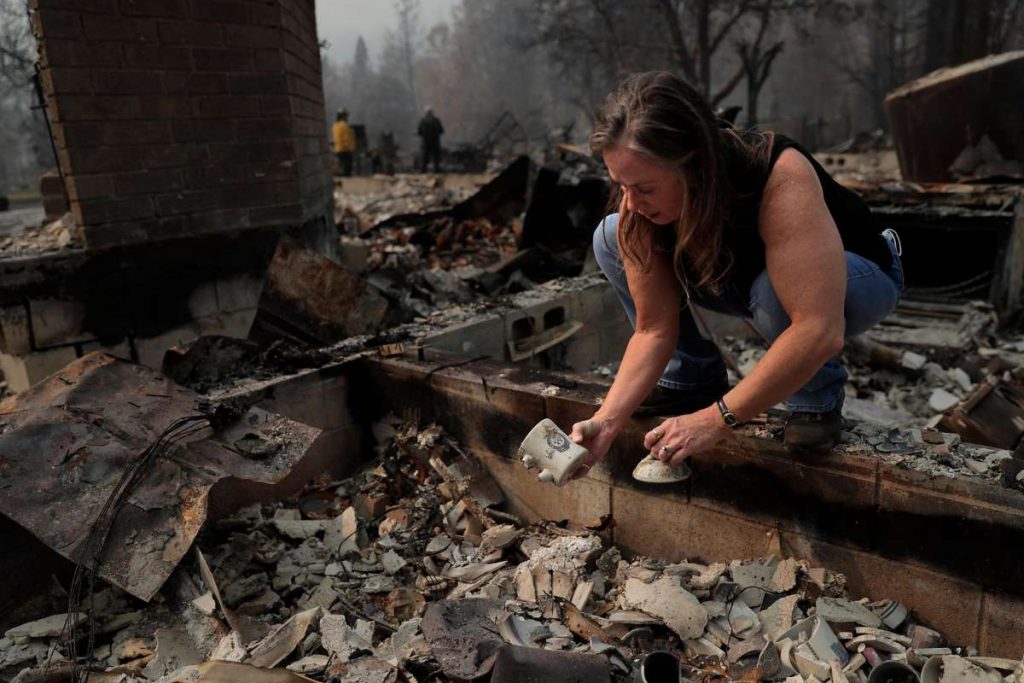
October 14, 2020. On Indigenous Peoples’ Day, the Karuk Tribe’s ongoing call for action on cultural solutions to wildfire management was featured on the front page of the SF chronicle! The article contains important messages and quotes by KBC members Bill Tripp, Kathy McCovey, and Frank Lake as well as Karuk Tribal Chairman Attebery and other important Tribal members and leaders.
October 6, 2020. Listen to Karuk-Berkeley Collaborative (KBC) member Frank Lake (Karuk Tribal member and USFS employee) describe what the US Forest Service can learn from Indigenous fire management.
September 16, 2020. While a whole slew of articles featuring the voices and work of Karuk, Yurok, Klamath and other Northern California tribes around the urgent need for Indigenous-led/-guided good fire and cultural burning came out in September, we are highlighting the Guardian article written by Karuk Dept. of Natural Resources Director Bill Tripp.
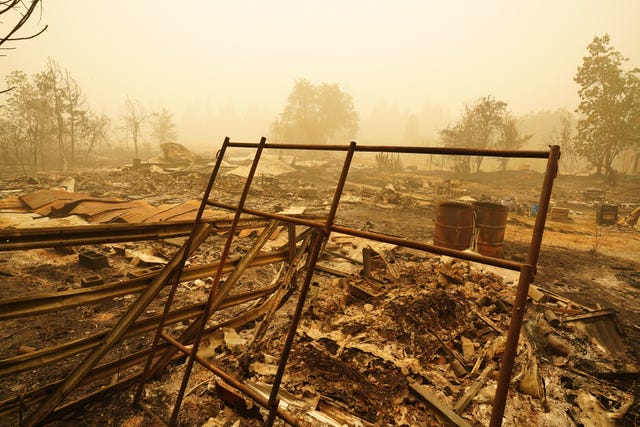
Credit: H. Vu
Early September, 2020. Tragedy swept through Happy Camp, CA and surrounding areas in Karuk Ancestral Territory in the form of a destructive wildfire. Many Tribal homes, businesses, and sacred areas were evacuated and/or destroyed. Relief efforts can be financially supported through the “Karuk Tribe – Slater Fire Relief Fund.”
April 24, 2020. High Country News article featuring the efforts of the Indigenous Peoples Burning Network and sister networks to revive fire on indigenous lands and with indigenous hands, showcasing the efforts of Karuk Dept. of Natural Resources Bill Tripp among others.
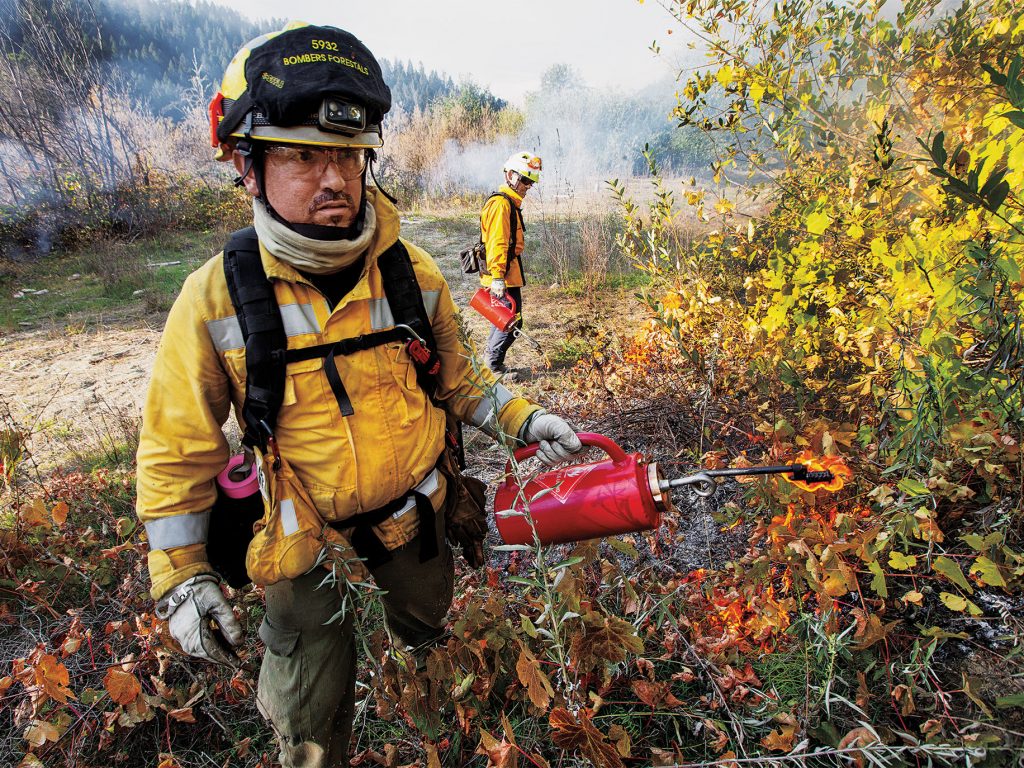
April 13, 2020. This Journal of Alta California article shared the words and efforts of Lisa Hillman, Bill Tripp, and Anna Colegrove-Powell from the Karuk Dept. of Natural Resources about indigenous fire restoration from northern California down to San Francisco Bay Area.
March 25, 2020. Earth Island Journal published this article featuring KDNR’s Bill Tripp and other Karuk and Yurok fire and cultural practitioners that details how indigenous-led fire trainings are leading to forest recovery and communal, cross-cultural learning.
February 4, 2020. Ryan Reed contributed to a great NPR Science Friday radio segment on how Native communities are addressing climate change, highlighting his work as Spring Salmon Ceremonial Priest of the Karuk People and the holistic approaches within the Karuk Climate Adaptation Plan.
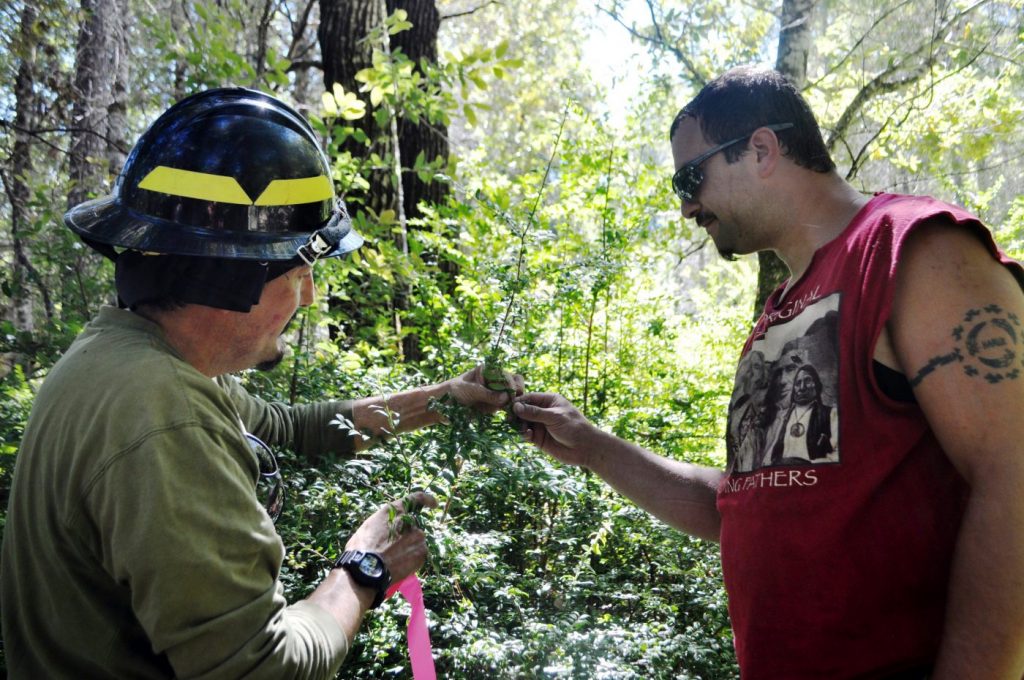
January 31, 2020. Grist’s article about how Frank Lake and others within the US Forest Service, Karuk Tribe and Yurok Tribe are institutionalizing the premise that “fire is medicine,” aided by the 2013 creation of the Western Klamath Restoration Partnership.
January 24, 2020. New York Times’ California Today story about Bill Tripp, Leaf Hillman and other Karuk as well as Yurok Tribe members bringing cultural burning practices back to Northern California, a major hope for reducing the impact of catastrophic fire.
December 23, 2019. Sierra Sun Times story about UC Agriculture and Natural Resources’ 2018 report that featured Jennifer Sowerwine’s collaboration with Karuk, Yurok and Klamath tribes on food security and sovereignty.
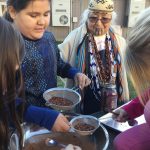
November 26, 2019. National Farm to School Network (NFSN) wrote a profile on the success of Karuk Tribe’s Píkyav Field Institute in its various Farm to School-related initiatives. Director Lisa Hillman received a Native Farm to School (F2S) Champions award on behalf of the Institute from the Intertribal Agriculture Council (IAC) and NFSN in December at the IAC annual conference.
August 14, 2019. New York Times story “Fighting Hunger in the Klamath River Basin” features findings from the Tribal Food System Assessment conducted by UC Berkeley and the Karuk, Yurok and Klamath Tribes.
July 24, 2019. Indigenous food security depends on food sovereignty – Civil Eats talks to Lisa Hillman about collaborative research results and food sovereignty efforts in Karuk country.
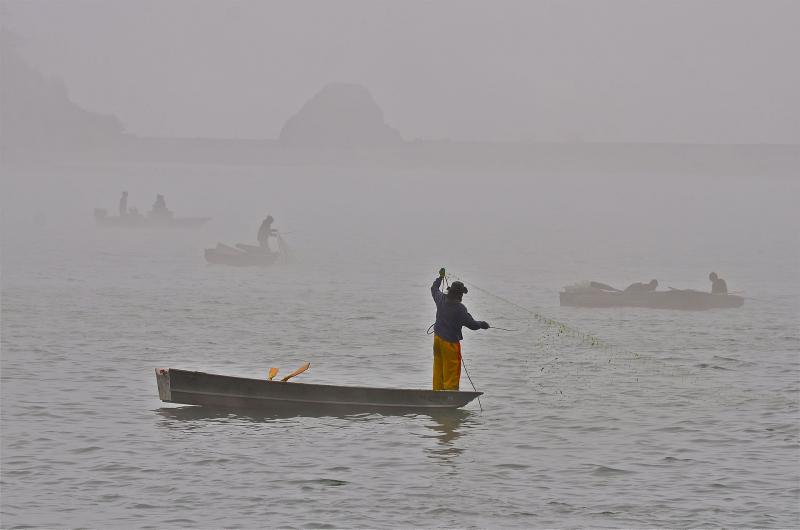
July 17, 2019. Native Americans rank highest in food insecurity, with limited access to both traditional and modern foods; Jefferson Public Radio interview with Jennifer Sowerwine and Lisa Hillman.
June 21, 2019. Blog post: New study finds that Native American communities could improve their food security with a greater ability to hunt, fish, gather and preserve their own food. Read more.
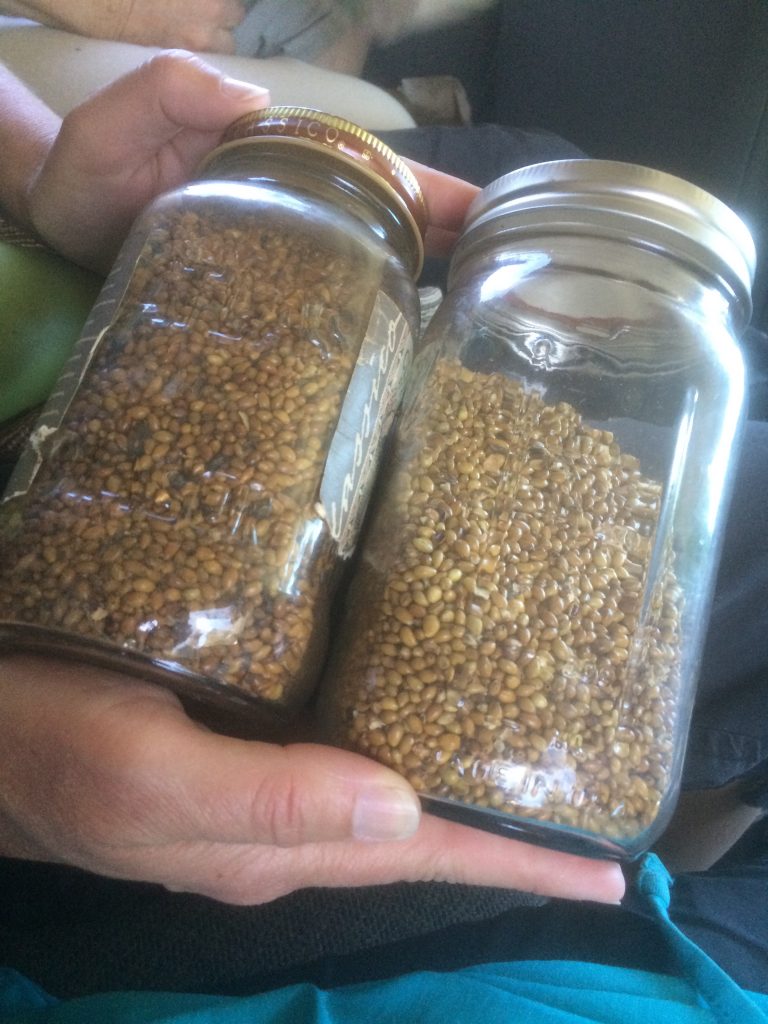
March 12, 2019. KBC members Lisa Hillman and Leaf Hillman describe Karuk tribal ecological projects and the Tribe’s struggle to restore cultural fire. High Country News.
October 11, 2018. KBC members Frank Lake, Bill Tripp, and Lisa Hillman interviewed in Civil Eats on reviving traditional Native foods and communities through agroforestry and cultural burning.
August 20, 2018. Karuk Agroecological Resilience co-Principal Investigators Jennifer Sowerwine and Lisa Hillman interviewed on Jefferson Public Radio.
August 11, 2018. New Karuk Tribe and UC Berkeley cultural foods resilience research announced in California Magazine.
August 8, 2018. The new UC Berkeley and Karuk Tribe collaborative research project featured in the Times-Standard.
July 25, 2018. Blog post: UC Berkeley researchers partner with the Karuk Tribe to learn more about stewarding native food plants in fluctuating environmental conditions. Read more.
July 20, 2018. UC Berkeley and the Karuk Tribe will continue to collaborate to increase the resilience of cultural foods through research, new tools and community skill-building, supported by a $1.2 Million grant from the USDA. Featured in the Siskiyou Daily News and Native America Today.
May 21, 2018. PI Jennifer Sowerwine’s cultural food restoration work profiled in The Daily Californian.
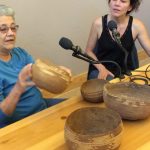
October 7, 2017. The Karuk Tribe will train staff and expand its Sípnuuk Digital Library, Archives, and Museum with a new $50,000 grant for the Urípih Nuvíiktihêesh (We Will Weave a Net) Project, reports the Times-Standard.
August 16, 2017. Blog post: Preview the how-to publication Orchard Revitalization and Heirloom Fruit of the Klamath and Salmon Rivers: Preserving the Past, Securing the Future. Read more.
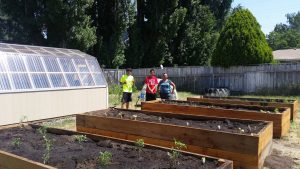
August 15, 2017. Klamath Tribes’ Food Security Coordinator Perri McDaniel toured the project’s newest community garden with the Herald and News.
July 8, 2017. A $100,000 Farm to School grant will support the Karuk Tribe’s continued outreach to K-12 students through the Upiftánmaahti (Growing from a Seed) Project, described in Native News Online.
July 7, 2017. Blog post: Impacts created through the five-year Tribal Food Security project with the Karuk, Yurok and Klamath Tribes. Read more.
May 3, 2017. Blog post: Managing land for Tribal goals: researchers share their findings at the Píkyav Lecture Series. Read more.
April 1, 2017. Blog post: Tribal and UC Cooperative Extension partners shared collective learning at a workshop for Extension staff seeking to work effectively with Tribes. Read more.
March 28, 2017. Blog post: Climate change and food security: our gardens need water and sunshine, and our cultural terrestrial foods require cool, slow burns, but what about when the weather itself is a barrier? Read more.
March 14, 2017. Karuk Tribe storytelling, language and food outreach to local schools was covered in the Two Rivers Tribune.
March 8, 2017. Blog post: Building our networks: a visit with members of the Bishop, Big Pine, Lone Pine, and Mono Lake Paiute Tribes. Read more.
February 4, 2017. Karuk-Berkeley Collaborative co-founder Ron Reed of the Karuk Tribe was featured on the Delicious Revolution podcast.
January 30, 2017. Píkyav Field Institute Manager, Lisa Hillman, and Karuk Director of Natural Resources, Leaf Hillman, described the vision for the Tribe’s new educational initiative on Jefferson Public Radio.
January 16, 2017. The Karuk Tribe’s launch of the Píkyav Field Institute with a $1 million grant from the U.S. Department of Education was featured in Native News Online, Daily Kos, Eureka Times-Standard and the Siskiyou Daily News.
December 8, 2016. Mid-Klamath Watershed Council’s Bread University Workshop instructor, Malcolm Terence, shared his bread-making history and methods in the North Coast Journal.
August 23, 2016. Karuk-UC Berkeley co-founder Tom Carlson, Karuk Food Security Coordinator Lisa Hillman, and Karuk Director of Natural Resources Leaf Hillman were interviewed on Jefferson Public Radio about the newly opened Karuk Tribal Herbaria.
August 13, 2016. The Grand Opening of the Karuk Tribal Herbaria was featured in Native News Online.
May 16, 2016. First Nations Development Institute announced a grant to the Klamath Tribes’ Food Security Program to build a community kitchen.
April 4, 2016. The Karuk Tribe’s launch of the Sípnuuk Digital Library, Archives and Museum was highlighted in the Siskiyou Daily News.

March 28, 2016. The Klamath Basin Tribal Food Security Project was profiled in Civil Eats.
